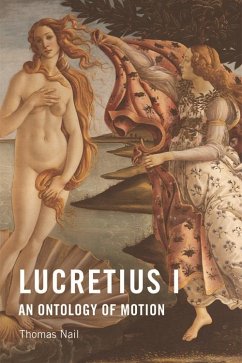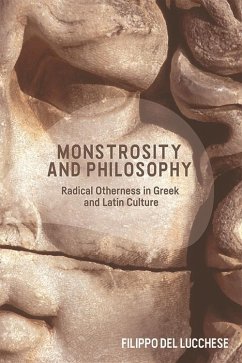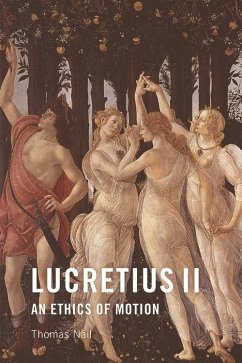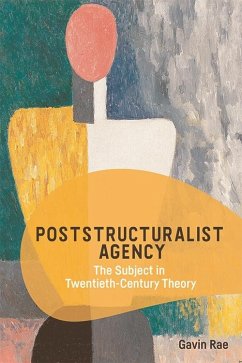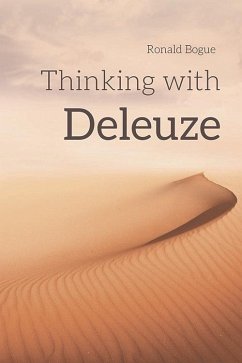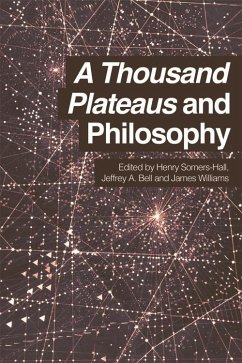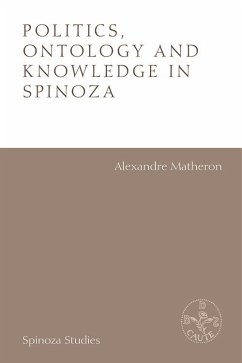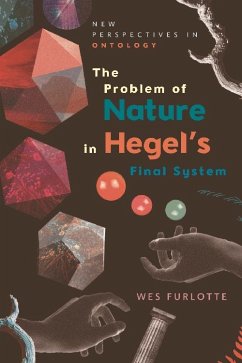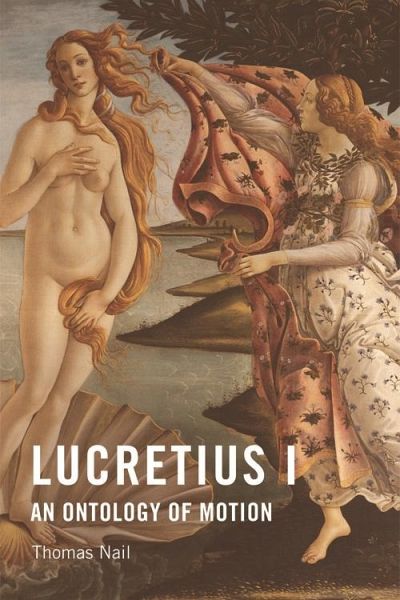
Lucretius I (eBook, ePUB)
An Ontology of Motion

PAYBACK Punkte
8 °P sammeln!
The most original and shocking interpretation of Lucretius in the last 40 yearsA new materialist, quantum and feminist interpretation of LucretiusArgues the original and provocative thesis that Lucretius was not an atomist but rather the first philosopher of motionThe most profound revision of how we read Lucretius since Michel Serres' The Birth of Physics (1977)Luretius II launch offerFind out where it all started: we''re offering a free ebook of Lucretius I when you buy a copy of Lucretius II. Just add a copy of Lucretius II (paperback, hardback or ebook) and a Lucretius I ebook to your bask...
The most original and shocking interpretation of Lucretius in the last 40 years
- A new materialist, quantum and feminist interpretation of Lucretius
- Argues the original and provocative thesis that Lucretius was not an atomist but rather the first philosopher of motion
- The most profound revision of how we read Lucretius since Michel Serres' The Birth of Physics (1977)
Luretius II launch offer
- Find out where it all started: we''re offering a free ebook of Lucretius I when you buy a copy of Lucretius II. Just add a copy of Lucretius II (paperback, hardback or ebook) and a Lucretius I ebook to your basket, and enter the code Lucretius2 when you check out. Visit the webpage for Lucretius II
Thomas Nail argues convincingly and systematically that Lucretius was not an atomist, but a thinker of kinetic flux. In doing so, he completely overthrows the interpretive foundations of modern scientific materialism, whose philosophical origins lie in the atomic reading of Lucretius' immensely influential book De Rerum Natura.
This means that Lucretius was not the revolutionary harbinger of modern science as Greenblatt and others have argued; he was its greatest victim. Nail re-reads De Rerum Natura to offer us a new Lucretius - a Lucretius for today.
Dieser Download kann aus rechtlichen Gründen nur mit Rechnungsadresse in A, B, BG, CY, CZ, D, DK, EW, E, FIN, F, GR, HR, H, IRL, I, LT, L, LR, M, NL, PL, P, R, S, SLO, SK ausgeliefert werden.




